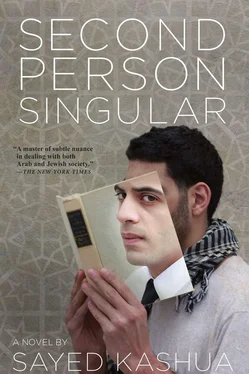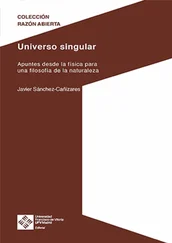He surprised himself with these thoughts. If that’s how I perceive her, he thought, then she must be aware of it, and for a moment he practically condemned himself for her decision to seek solace in someone else’s arms. But that’s not how it is, he said to himself, cutting the chain of thought, by God that’s not how it is. He might be busy, he might not love her as he used to, but he did not ignore her or forsake her or make her life unduly hard. She was just as preoccupied with life as he was. How could she ever find time to think, strive, desire? Who even had time to cheat?
His wife had a good life, he concluded, and mine isn’t too bad either. It had been a little bit boring, but by no means dreadful.
A sign missing a few of its letters in Hebrew and Arabic welcomed him to Jaljulia. The lawyer decided to stop at the gas station at the entrance to the village. He’d never been to Jaljulia but he had known, ever since he had been a kid growing up nearby, that it was even worse off than the surrounding Arab villages, which were the kinds of places he learned later in life to call disenfranchised. In college, for instance, he had never once met a student from Jaljulia.
“Hello,” a middle-aged attendant said as he wiped his hands on a towel and walked out of his office. “Ninety-five unleaded?” he asked, and the lawyer nodded and said, “Yes, fill it up please.”
“How much does a car like this cost these days?” the attendant asked as he shoved the nozzle into the tank.
“Not sure,” the lawyer said. “A lot.”
“Great ride, though,” the attendant said. “You’re not from here, are you?”
“No,” the lawyer said, and he found himself adding, without much forethought, “Actually I came down here to look for an old friend from school. I haven’t seen him in six or seven years.”
“Who?” the attendant asked. “Someone from here? From Jaljulia?”
“Yeah,” the lawyer said. “His name’s Amir Lahab.”
“Lahab?” the attendant asked, screwing up his face. “You sure he’s from here? There’s no Lahab family in this village. Not that I know of.”
“No big deal,” the lawyer said. “Could be I got confused. I was just driving past and I thought of him. I might’ve gotten it wrong. Maybe he’s from somewhere else.”
“Baher!” the attendant yelled, turning his head toward the office.
“What?” a young man asked, coming out of the office and wiping his mouth with a napkin as he chewed.
“Is there someone named Lahab in this village? Is that what you said, Lahab?”
“Amir.”
“You know an Amir Lahab?” the old attendant asked just as the tank was filled.
“Ahh,” the young guy said, approaching the car. “Lahab? There’s that teacher, you know, the one from Tira, you know who I mean. .”
“Ah, yeah, yeah,” the older man said. “That’s her son he’s looking for?”
“Could be,” the young man said. “She had a kid in school. A few years older than me. He went to college. Could be him.”
The lawyer knew it was.
“What could someone like her ever do for someone like you?” the young man asked.
At that, the older attendant erupted. “Shut up and get out of here,” he hissed at the young man, then turned to the lawyer, afraid that somehow the young man had gotten them into trouble. “The kid is an idiot. I’m sorry. Don’t believe a word he says. I’m telling you, this village, may God forgive its inhabitants, they don’t let people live their own lives. I’m telling you that your friend was raised in a very good home. And if anyone in this village wants to tell you differently, then I’m telling you that he’s a liar and a son of a liar. No one will tell you that they ever saw that boy’s mother do anything wrong.”
“I’m sure. He was always a great kid,” the lawyer said, “that Amir.”
“What did I tell you?” the attendant said, shutting the gas tank. “Anyway, she rents from um-Bassem. Go up the hill,” the attendant said, pointing straight ahead, “and take a right by the Maccabi health clinic. There’s a sign with a Magen David on it, you’ll see it; anyway, take a right there. Go about a hundred yards more and ask for um-Bassem’s house.”
All the Arab villages look exactly the same, the lawyer thought to himself as he cruised through the streets. The local councils usually invest money on the entrance to the city and let the rest of the place rot, their main concern that there be a nice place for the head of the council to take his next campaign picture. All Arab villages have some kind of traffic circle near the entrance to the village and there’s always a pale-looking palm tree rooted there. The deeper into the village you go, the narrower the streets, until they turn to dirt, thin and dusty in summer and thick and oozing with mud in winter. The lawyer followed the gas attendant’s directions, driving slowly, attracting stares from the pedestrians. He stopped alongside a neighborhood convenience store. Two older men sat outside. He took off his sunglasses and opened the window. “ Salaam alaikum, ” he said, playing up his country accent. The lawyer didn’t need their help but he figured he’d talk to them to quiet the neighbors’ unspoken apprehension and curiosity.
“ Alaikum a-salaam, ” the two elderly men answered in unison.
“I am looking for the home of the haja um-Bassem.”
“Um-Bassem, may Allah have mercy,” one of them answered. The lawyer tried to hide his embarrassment at the fact that he hadn’t known he was looking for a dead woman’s house.
“Take a right down there,” the second one said, pointing at the next turn. “The house is on that dirt road. Not the first, not the second, but the third house. That’s hers, Allah have mercy.”
“ Ta’ish ,” the lawyer said, as though he were a family member accepting condolences.
The lawyer fished through his bag to make sure he still had the book. He’d introduce himself as a lawyer and say he was looking for the person to whom the note had been addressed. Or not. He imagined the man’s reaction and was rattled. It could be dangerous. And anyway how would he explain why he was looking for the man? The note didn’t even have Amir’s name on it. Maybe he should say he was a reporter, at least at first, until he had a better sense of the lover’s personality and could gauge how he might react. He could be a reporter who was working on a story about the outpatient clinic in east Jerusalem. Yeah, the lawyer thought, that was the way to go. He was a reporter looking into what seemed like years of corruption at the clinic. And if this Amir character didn’t buy it, then he’d just leave, no harm done.
“Who gave you my name?” he would certainly ask, and the lawyer would say he heard about him from a social worker by the name of Leila, and he would appraise the effect of her name on him. That’s exactly what he would do, he thought, and he parked the car past the house, out of view, because what kind of journalist drives around in a half-million-shekel car?
The lawyer knocked on the door and took a quick step back. A neighbor hanging laundry on a nearby roof eyed him suspiciously.
The door opened. A fifty-year-old woman looked at the stranger on her doorstep and then furtively at the neighbors.
“Hello,” the lawyer said.
“Welcome,” the woman said. “How can I help you?”
“Excuse me,” the lawyer said. “I was wondering if this was the home of Amir Lahab?”
“Yes,” the woman said. “Who are you? Did something happen to him?”
“No, no,” the lawyer said. “I just wanted to talk to him about something. Nothing major. I guess he’s not home, though.”
“No,” the woman said, her voice knotted with worry. “He’s not home.”
Читать дальше












